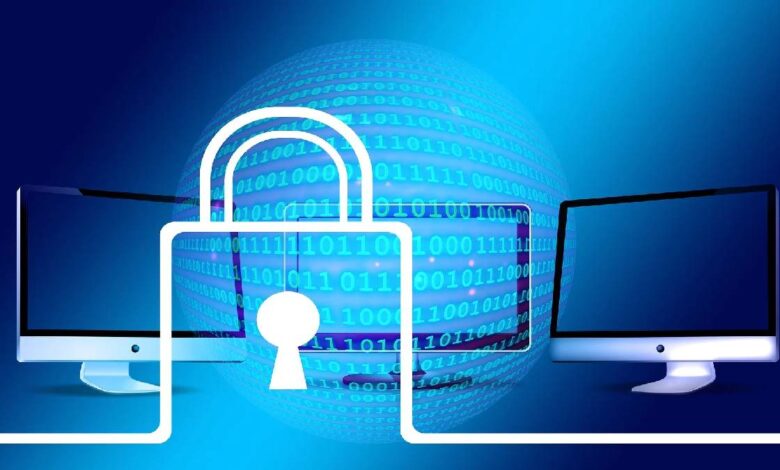The Importance of Data Security in CRM and SRM Systems

In today’s digitally-driven world, businesses rely heavily on customer relationship management (CRM) and supplier relationship management (SRM) systems to streamline their operations, manage customer data, and collaborate with suppliers. However, with the increasing volume and complexity of data, it’s crucial for businesses to ensure that their CRM and SRM systems are secured from cyber threats. In this article, we will discuss the importance of data security in CRM and SRM systems and what you need to know to protect your data.
Why Data Security is Important in CRM and SRM Systems?
CRM and SRM systems are critical to businesses, as they store sensitive information such as customer data, financial information, and supplier contracts. In the absence of proper security measures, cybercriminals can exploit vulnerabilities in these systems to gain unauthorized access to the data, leading to significant consequences such as financial loss, legal liability, and reputational damage.
Data breaches are a common occurrence in today’s digital landscape, and their frequency and severity have been on the rise in recent years. A study by IBM revealed that the average cost of a data breach in 2021 was $4.24 million, which is a significant financial burden for businesses of all sizes.
In addition to financial losses, data breaches can also result in a loss of customer trust and loyalty, which can be challenging to regain. Customers expect businesses to safeguard their data and ensure that it’s only used for legitimate purposes. Failure to do so can lead to a breach of trust, resulting in lost business and revenue.
Therefore, it’s crucial for businesses to prioritize data security in their CRM and SRM systems to protect themselves and their customers from cyber threats by doing the following:
1. Conduct Regular Security Audits
The first step in ensuring data security in CRM vs SRM systems is to conduct regular security audits. A security audit helps identify vulnerabilities and potential threats in the system and helps businesses take preventive measures to mitigate them.
A security audit involves reviewing the system’s security architecture, policies, and procedures, and testing the system for vulnerabilities. This process can be carried out by an internal security team or an external security consultant.
2. Implement Strong Password Policies
Passwords are a primary line of defense against cyber threats. Therefore, it’s essential to implement strong password policies in CRM and SRM systems.
Strong passwords should be at least eight characters long and include a combination of uppercase and lowercase letters, numbers, and special characters. Passwords should be changed regularly, and users should not reuse the same password across multiple accounts.
In addition to strong passwords, businesses should also implement two-factor authentication (2FA) to provide an additional layer of security. 2FA requires users to provide two forms of authentication, such as a password and a code sent to their mobile device, to access the system.
3. Encrypt Sensitive Data
Encrypting sensitive data is another critical measure to protect data in CRM and SRM systems. Encryption scrambles the data so that it’s unreadable to unauthorized users. Even if a hacker gains access to the system, they won’t be able to read the encrypted data.
Businesses should ensure that all sensitive data, such as customer data and financial information, are encrypted both in transit and at rest. Encryption can be implemented using various technologies such as Transport Layer Security (TLS) and Secure Sockets Layer (SSL).
4. Limit Access to Data
Another critical measure to ensure data security in CRM and SRM systems is to limit access to data. Businesses should implement strict access controls to ensure that only authorized users have access to sensitive data.
Access controls should be based on the principle of least privilege, which means that users should only have access to the data and resources necessary to perform their job functions. This can be achieved by implementing role-based access controls, where users are assigned specific roles that determine their level of access to the system.
5. Train Employees on Data Security Best Practices
Employees are often the weakest link in data security, as they can inadvertently expose sensitive data through careless actions such as clicking on phishing emails or using weak passwords. Therefore, it’s crucial for businesses to train their employees on data security best practices.
Training should cover topics such as password management, phishing awareness, and safe browsing habits. Employees should also be trained on the company’s data security policies and procedures, and the consequences of non-compliance.
6. Keep Software Up-to-Date
Software vulnerabilities can be exploited by cybercriminals to gain unauthorized access to CRM and SRM systems. Therefore, it’s essential to keep all software up-to-date to ensure that known vulnerabilities are patched.
Businesses should regularly update their operating systems, web browsers, and other software applications used in their CRM and SRM systems. This can be done manually or using automated software update tools.